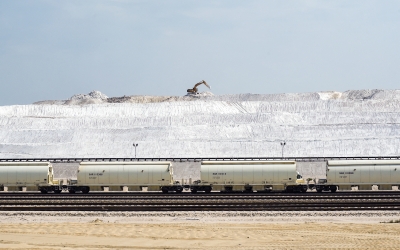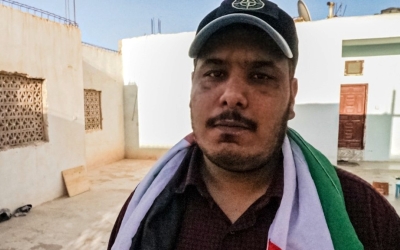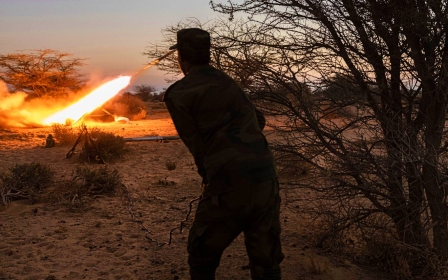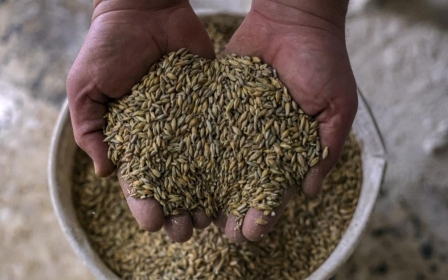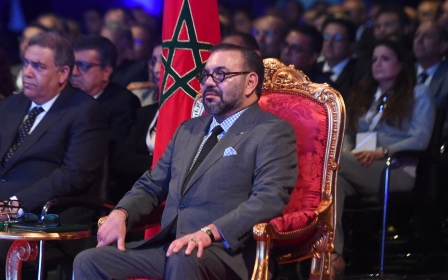The gold rush for Morocco's phosphate in the Ukraine war aftermath
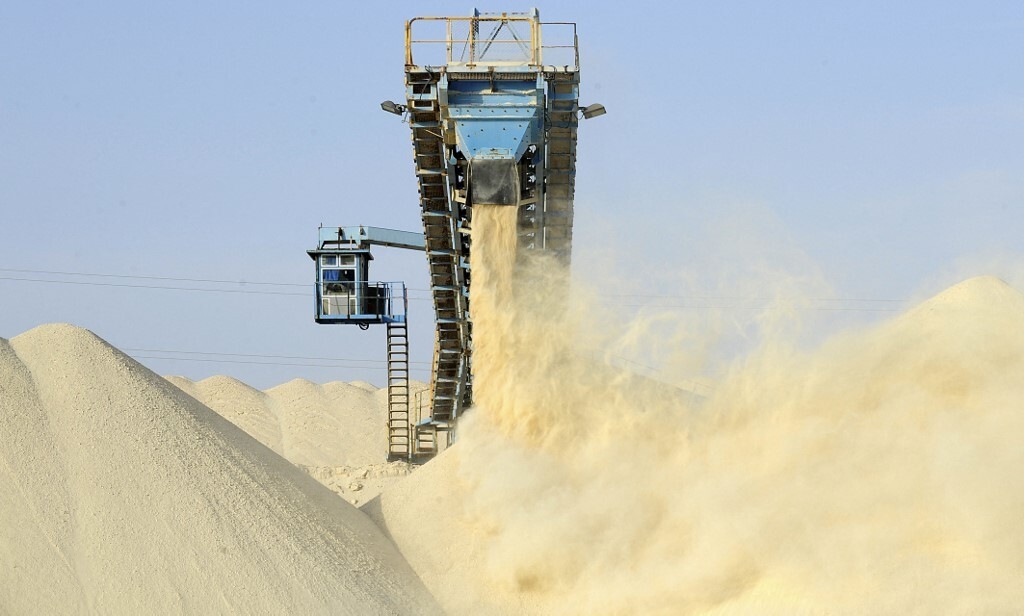
As much of Morocco's economy struggles to absorb the shock waves of Russia's invasion of Ukraine, one sector in the country has been profiting: the phosphate production business.
Disruptions to the global supply chain following the beginning of the war pointed fertiliser importers in the direction of Rabat, which was already a leading producer of phosphate rock and a major exporter of raw phosphate.
The benefits have been immense.
During the first quarter of 2022, Morocco's state-owned OCP group, the country's phosphate rock miner and phosphoric acid manufacturer and fertiliser producer, recorded a turnover of 2.4bn euros - up by 77 percent compared to last year, over the same period.
In May, the company said this record can be explained by the fact that "the Russian-Ukrainian conflict intensified the tense situation in terms of the supply/demand balance on the phosphate market, and led to a further rise in prices, which was also supported by the rising raw material costs, especially ammonia and sulphur".
While second half results have yet to be released, a source within OCP told Middle East Eye the same trend has been continuing since March.
Thus, at the end of April, sales would have reached just over 3.5bn euros - double the result recorded in 2021 over the same period.
However, the rest of the economy stands in stark contrast to these numbers.
The price of a barrel of oil reached $128 against $51 in March of the previous year, and that of coal climbed in March to $415 against $69 in 2021, putting the coffers of the state to the test.
The highly strategic National Office for Electricity and Drinking Water (ONEE) is the first public establishment to pay the price.
Speaking in April in front of parliamentarians, its director general Abderrahim El Hafidi delivered a gloomy forecast: the deficit of the office is projected to reach 24bn dirhams ($2.2bn) in 2022, as opposed to a surplus in 2021.
Beyond the situation of ONEE, the effects on the Moroccan economy are such that the government will need to be satisfied in 2022 with a growth rate of 1.3 percent against 7.9 percent in 2021, according to the official Moroccan statistics body.
Militarisation of food
With China, the world's largest fertiliser producer, cutting back on exports to satisfy its local market, and Russia subject to international sanctions, the spectre of a food crisis haunts many leaders.
"Over the next few months, a major challenge will be access to fertilisers, which could impact the production of many food crops in different regions," warned the World Bank.
The Food and Agriculture Organisation of the United Nations (FAO) echoes a similar concern: "The fact that fertiliser prices are high and volatile raises fears of low fertiliser availability in 2022-2023, which could negatively impact food production and food security."
Seventy percent of the world's phosphate reserves sit in Morocco and Western Sahara, and Morocco wants to meet part of the demand and increase its production by 10 percent this year.
Mining and exporting phosphate in Western Sahara is a politically contentious issue, with Sahrawis accusing Morocco of illegally using its occupation of the disputed territory to profit from the precious natural resource.
"In the next four years, production capacity could increase by more than 50 percent," an OCP source told MEE on condition of anonymity.
According to an analysis by the Middle East Institute, a Washington-based think tank, "by helping to counter the Russian threat to militarise the food-energy nexus, Rabat demonstrates its growing importance for Europe and the United States as a geopolitical partner in sub-Saharan Africa".
"As Europe faces a two-pronged geo-economic war of attrition with Russia, Morocco's plan to increase its fertiliser production… changes the strategic equation by countering Moscow's ability to militarise food and energy", continues the think tank.
Phosphate diplomacy
Heavily dependent on Russian fertilisers, Brazil was one of the first countries to turn to Morocco to increase its fertiliser imports.
On a visit to Rabat in May, within the framework of what he called "phosphate diplomacy", the Brazilian agriculture minister Marcos Montes met the president of OCP Mostafa Terrab, who immediately announced the project for a phosphate processing plant in Brazil.
A few days later, it was Japanese Deputy Agriculture Minister Takebe Arata's turn to travel to the kingdom to ask for more phosphates.
"Morocco is a world powerhouse in phosphate and it is for this reason that my country is interested in importing a large quantity of fertiliser," he told reporters on 16 May.
Translation: "We were very well received by CEO Mostefa Terrab who announced his intention to collaborate with the National Fertiliser Plan, launched this year by President Jair Bolsonaro, and to invest in Brazil with the installation of a phosphate treatment unit."
During the same period, the Bangladeshi press reported an approval by the local government for an import of 40,000 tonnes of fertiliser from the Moroccan company.
Countries in sub-Saharan Africa, where 60 percent of the population relies on agriculture, are no exception.
Through its twelve African subsidiaries, the OCP is increasingly extending its influence in the continent, where according to information obtained by MEE, it intends to build new factories in the coming years.
Last month, the phosphate giant also released 550,000 tonnes of fertilisers, or 20 percent of its production, in the form of donations or sales at reduced prices for countries in Africa.
An announcement was made a few days later offering 15,000 tonnes to Rwanda, where the Moroccan group will open a factory in 2023 in partnership with the government of Paul Kagame.
"We are lucky that our friends at OCP have donated 15,000 tonnes of DAP fertiliser [diammonium phosphate, one of the products marketed by OCP]. We are going to inject them into the sector", said Gerardine Mukeshimana, Rwanda's agriculture minister, in an interview given to local newspaper The New Times.
The same scenario played out in Niger, where the vice-president of OCP for West Africa, Mohamed Hettiti, led a delegation in June. During the visit, the head of the phosphate giant announced a plant project for the production of fertilisers.
This article was originally published in French.
Middle East Eye propose une couverture et une analyse indépendantes et incomparables du Moyen-Orient, de l’Afrique du Nord et d’autres régions du monde. Pour en savoir plus sur la reprise de ce contenu et les frais qui s’appliquent, veuillez remplir ce formulaire [en anglais]. Pour en savoir plus sur MEE, cliquez ici [en anglais].


